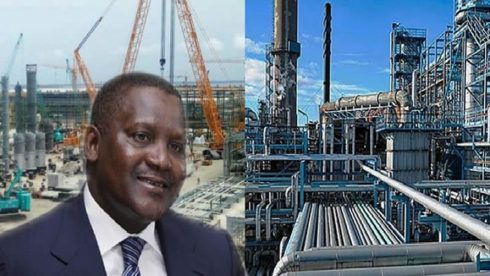The Crude Oil Refinery Owners Association of Nigeria (CORAN) has urged the Federal Government to reconsider granting fuel import licences to independent petroleum marketers, raising concerns over the potential impact on Nigeria’s domestic refining industry. CORAN’s statement comes in response to the growing debate between the Dangote Petroleum Refinery and various oil marketers, who are advocating for the right to import Premium Motor Spirit (PMS) and sell it at competitive prices.
The Petroleum Products Retail Outlet Owners Association of Nigeria (PETROAN) argues that imported petrol could be sold below the current N990 per litre set by the Dangote Refinery. Meanwhile, the Independent Petroleum Marketers Association of Nigeria (IPMAN) is also seeking regulatory approval to import PMS, contending that it might be more affordable than purchasing from local sources like the Dangote refinery.
CORAN’s Concerns Over Substandard Fuel Imports
CORAN’s Publicity Secretary, Eche Idoko, expressed concerns that the local market might become a dumping ground for substandard fuel rejected by European markets. He highlighted that some international traders view Nigeria as a convenient destination for low-quality petroleum products, which are often cheaper but fail to meet environmental and performance standards accepted abroad.
CORAN Publicity secretary Eche Idoko emphasized that issuing import licences for products already in supply domestically risks undermining the growth of local refining. He advocated for the Nigerian Midstream and Downstream Petroleum Regulatory Authority (NMDPRA) to take a cautious approach, only granting licences based on genuine supply shortages rather than allowing competition from lower-standard imports. “We are not telling NMDPRA how to do its job,” he noted. “We are simply advising that they protect the domestic refining market and make decisions that sustain our emerging industry.”
Legal Provisions and Calls for Domestic Refining Support
While CORAN acknowledging the provisions of the Petroleum Industry Act (PIA), which does not prohibit the issuance of import licences, Idoko argued that the same law encourages “backward integration,” urging the government to promote local refining instead of relying on imports. He voiced frustration that many international players hold import licences while contributing minimally to Nigeria’s refining capacity or economic growth.
CORAN stressed the long-term benefits of fostering domestic refining capabilities, arguing that Nigeria’s economic recovery and growth depend on the development of local industries. “Building domestic refining capacity is far more valuable for Nigeria’s future,” he stated, dismissing the notion that imported fuel offers a genuinely lower price, as marketers claim. He challenged foreign traders to invest directly in Nigeria’s refining sector or partner with existing local refineries rather than relying on short-term, cost-cutting import tactics.
Protecting the Nigerian Market and Industry Development
CORAN also emphasized that international traders seeking access to Nigeria’s fuel market should consider establishing or investing in refining infrastructure within the country. Idoko argued that merely exporting lower-standard fuel to Nigeria without investing in local production damages the nation’s economic prospects and creates a dependency on imports that is unsustainable in the long term.
He pointed out that several refineries are expected to come online in Nigeria by next year, adding to the Dangote Refinery’s capacity and reducing the need for imports. “There’s no reason why international companies cannot partner with Nigerian refineries or participate in their ownership,” he suggested, noting that existing NNPC refineries are available for lease to interested investors. “If these companies truly believe in serving the Nigerian market, they should build here, create jobs, and contribute to our economic base.”
Call for Foreign Direct Investment and National Economic Growth
CORAN maintains that halting unnecessary importation is in Nigeria’s best interest, emphasizing that the nation should prioritize foreign direct investment that benefits the local economy. Idoko argued that allowing excessive imports threatens local investors who have risked their capital to develop the refining industry, potentially stalling economic progress.
“Governments worldwide protect their industries to encourage growth,” Idoko noted, highlighting the importance of local refining in stabilizing energy costs. “We must ensure Nigeria’s resources benefit its people by nurturing a self-reliant refining sector. Only by fostering our local capabilities can we hope to secure energy independence and reduce costs for consumers.” He concluded that prioritizing local production is the most effective long-term solution to achieving affordable energy and sustainable growth in the Nigerian economy.
Table of Contents
Discover more from OGM News NG
Subscribe to get the latest posts sent to your email.














